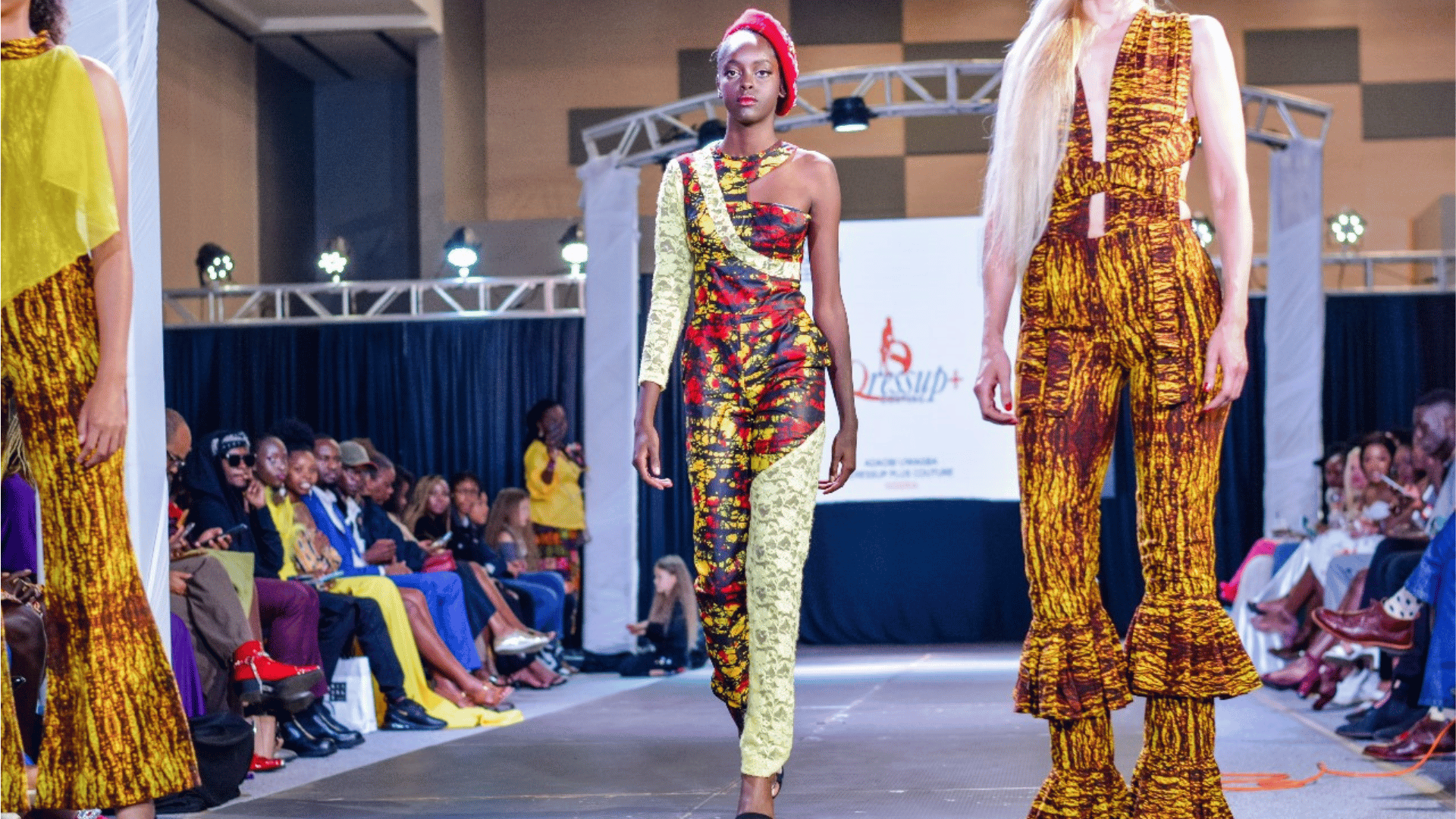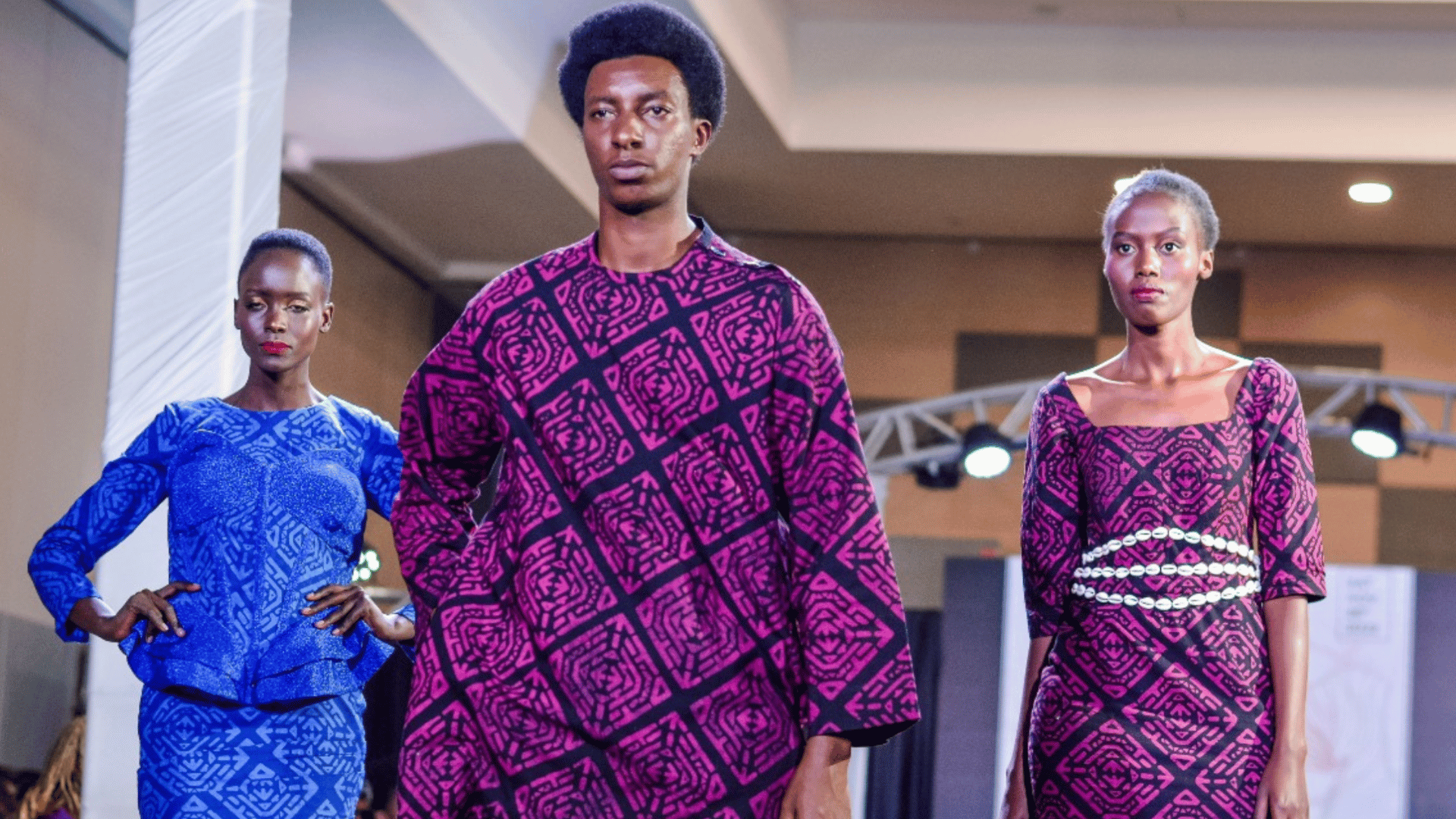From recycled denim to designs made from secondhand curtains, Nairobi Fashion Week has unveiled a series of new designers focused on sustainable fashion in Africa.

Originally created in 2013 to promote Africa’s fashion industry, the annual event has grown to become a showcase for sustainability and eco-conscious brands in recent years. One such brand featured this year was the Kenyan studio Maisha by Nisria, which makes designs by hand from discarded textiles sourced at flea markets, wholesalers, recycling factories, and landfills.
One piece featured in its new Afropia collection is a cropped high-collar jacket and boxy miniskirt made from repurposed curtains. Tausi Conde, the label’s head of design, became interested in the sustainable fashion industry in college when limited access to fabrics inspired him to repurpose his mom’s old clothes. The company also follows a zero-waste policy, transforming all leftover fabric into patchwork bags and accessories.

Rwandan designer Jean Maurice Niyigena, who runs the urban streetwear label Bone Koboyi, uses repurposed or recycled materials and works with local artisans to ethically source and tailor the clothing. His new Exodus collection uses exaggerated silhouettes and hand-painting inspired by traditional textile art.
“It’s about innovating without fear, while remembering where you come from,” stated Niyigena to The Guardian. “The [sustainable fashion] market is growing, especially among young conscious consumers who are more aware of environmental and social issues, and are looking for options that match their values and honour culture, and have global appeal.”
Another designer featured in the show, Cameroonian designer Sikoti Mbaitjongue, used her cotton pastel designs to highlight a challenge she has faced in sourcing and processing cotton. Because the bulk of cotton is exported to many African countries, Mbaitjongue now imports cotton from Benin, which affects the overall cost of her designs.
“For now, sustainable fashion is not a sustainable business – we can’t compete with fast fashion. But as more of us [eco-conscious designers] come up, I’d like to see a future where it is,” stated Conde.







